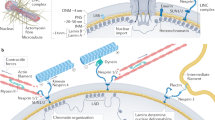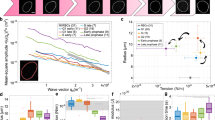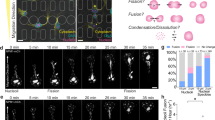Abstract
Mitosis is nuclear division plus cytokinesis,and produces two identical daughter cells during prophase, prometaphase, metaphase, anaphase, and telophase. However, a new nucleus behavior in interspecific hybrid progenies of Lilium was observed in our experiment. Very unusual behaviors of nuclei surprisingly presented during the mitosis, such as sprouting or germination, tube-like elongation, penetrating cell membrane into a neighbor cell, the top of nuclei tube expanding, intruding and splitting of the tube-like nucleus, and micronucleus formation, and so on. Furthermore, the tetrad of meiosis was founded in mitosis of root.Routine of the unusual nucleus behaviors observed in our experiment may be summarized as nucleus germination¬— tube-like elongation— penetrating cell membrane— entering a neighbor cell—the top of nuclei tube expanding—tube ingression and splitting— formation of a new nucleus or micronucleus.Many kinds of abnormal mitosis caused by chemical and physical induction such as unequal division, chromosome bridges, lagging chromosomes, and multiple nuclei have resulted in variations of chromosome number and structure. However, this new nucleus behavior is firstly reported, these phenomena implied that the DNA maybe easily emigrates from one cell to another. Therefore, the unusual behaviors of nuclei in hybrid progenies of Lilium not only create mutations for breeding of new cultivars, also produce possibly ideal materials for exotic DNA or gene transfication with simple method in meristem. This mode of nuclei behaviors is a new addition to cytogenetics of plant of vegetative propagation and provide a new genetic mechanism of species evolution from interspecific hybridization.
Similar content being viewed by others
Article PDF
Author information
Authors and Affiliations
Corresponding author
Rights and permissions
About this article
Cite this article
Sixiang, Z., Feihu, L., Chaojun, Z. et al. A New Behavior of Nuclei during Mitosis of Lilium Hybrids. Nat Prec (2010). https://doi.org/10.1038/npre.2010.4631.1
Received:
Accepted:
Published:
DOI: https://doi.org/10.1038/npre.2010.4631.1



